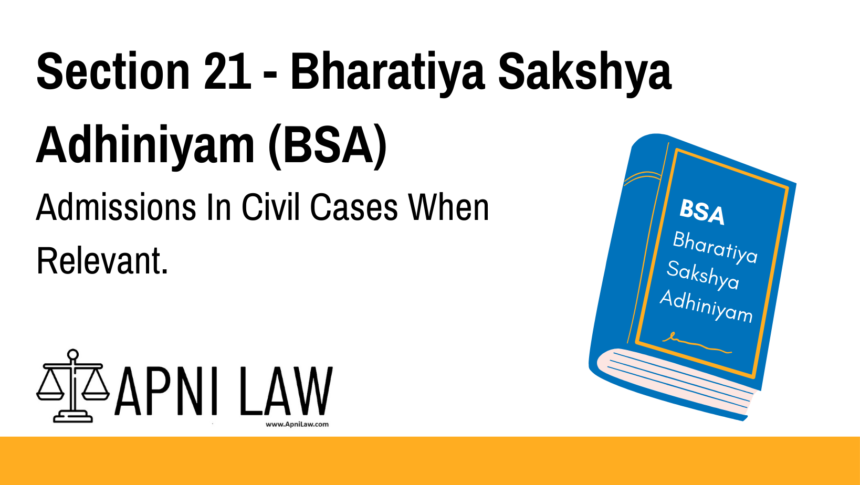Code
In civil cases, no admission is relevant, if it is made either:
- Upon an express condition that evidence of it is not to be given,
- Or under circumstances from which the Court can infer that the parties agreed together that evidence of it should not be given.
Explanation:
Nothing in this section shall be taken to exempt any advocate from giving evidence of any matter of which he may be compelled to give evidence under sub-sections (1) and (2) of section 132.
Explanation
This section protects the confidentiality of settlement talks or private negotiations in civil matters. If parties make an admission during discussions where they clearly stated — or the circumstances clearly show — that the admissions would not be used as evidence, then such admissions cannot be admitted in court.
The idea is to encourage free and honest negotiation without fear of statements being used later against a party.
The section also emphasizes that advocates are not exempt from giving evidence when legally required under Section 132, even if the admission occurred under confidential circumstances.
Illustration
A and B are involved in a civil dispute. During settlement discussions, A admits fault but says, “This is off the record and cannot be used in court.”
This admission is not relevant or admissible in evidence, as it was made with an express condition of confidentiality.
Key Concepts
- Applies only to CIVIL cases.
- Focuses on conditional or confidential admissions.
- Protects negotiation integrity.
- Advocates may still be compelled to testify under certain legal provisions.








